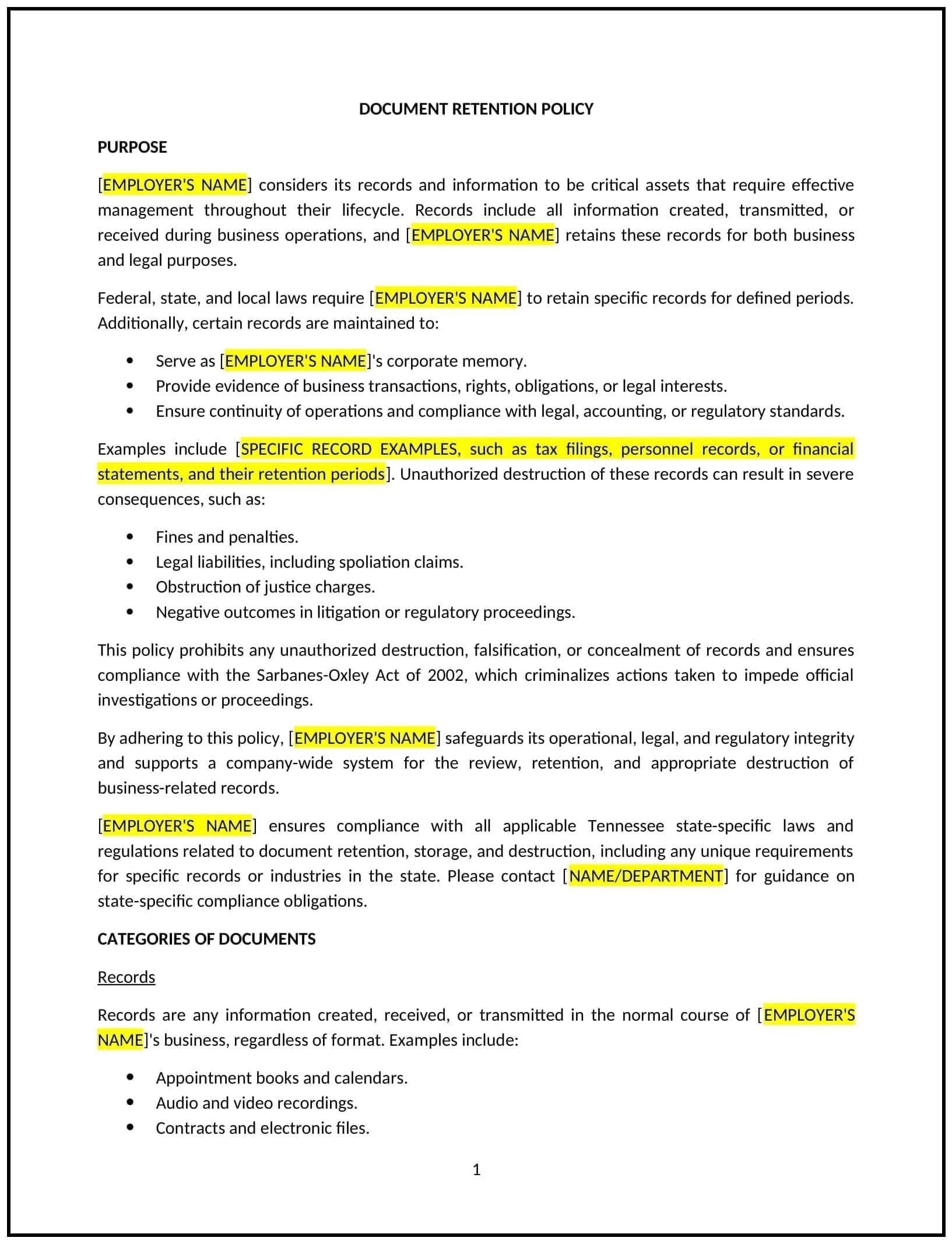Document retention policy (Tennessee): Free template
Got contracts to review? While you're here for policies, let Cobrief make contract review effortless—start your free review now.

Customize this template for free
Document retention policy (Tennessee)
This document retention policy is designed to help Tennessee businesses establish guidelines for managing the storage, retention, and disposal of business records. It outlines procedures for ensuring records are kept securely and disposed of appropriately to meet operational and legal needs.
By adopting this policy, businesses can improve organization, reduce storage costs, and minimize risks associated with improper record-keeping.
How to use this document retention policy (Tennessee)
- Define record categories: Classify documents by type, such as financial, HR, or operational records.
- Set retention periods: Specify how long each category of documents should be retained, based on legal and business requirements.
- Address storage methods: Outline secure storage solutions, such as digital archives or locked filing cabinets.
- Establish disposal procedures: Provide guidelines for securely disposing of records, such as shredding or digital wiping.
- Train employees: Educate staff on proper document handling and retention practices.
- Review and update: Assess the policy annually to ensure it aligns with evolving business needs and legal standards.
Benefits of using this document retention policy (Tennessee)
This policy offers several advantages for Tennessee businesses:
- Improves organization: Ensures records are stored systematically and easily accessible.
- Reduces storage costs: Minimizes unnecessary retention of outdated documents.
- Minimizes risks: Protects sensitive information and ensures compliance with record-keeping standards.
- Enhances efficiency: Streamlines document retrieval and disposal processes.
- Aligns with best practices: Supports a structured approach to record management.
Tips for using this document retention policy (Tennessee)
- Communicate the policy: Share the policy with employees and include it in the employee handbook.
- Provide training: Educate staff on proper document handling and retention practices.
- Monitor compliance: Regularly review document storage and disposal processes.
- Address issues promptly: Take corrective action if records are mishandled or improperly retained.
- Update regularly: Assess the policy annually to ensure it aligns with evolving business needs.